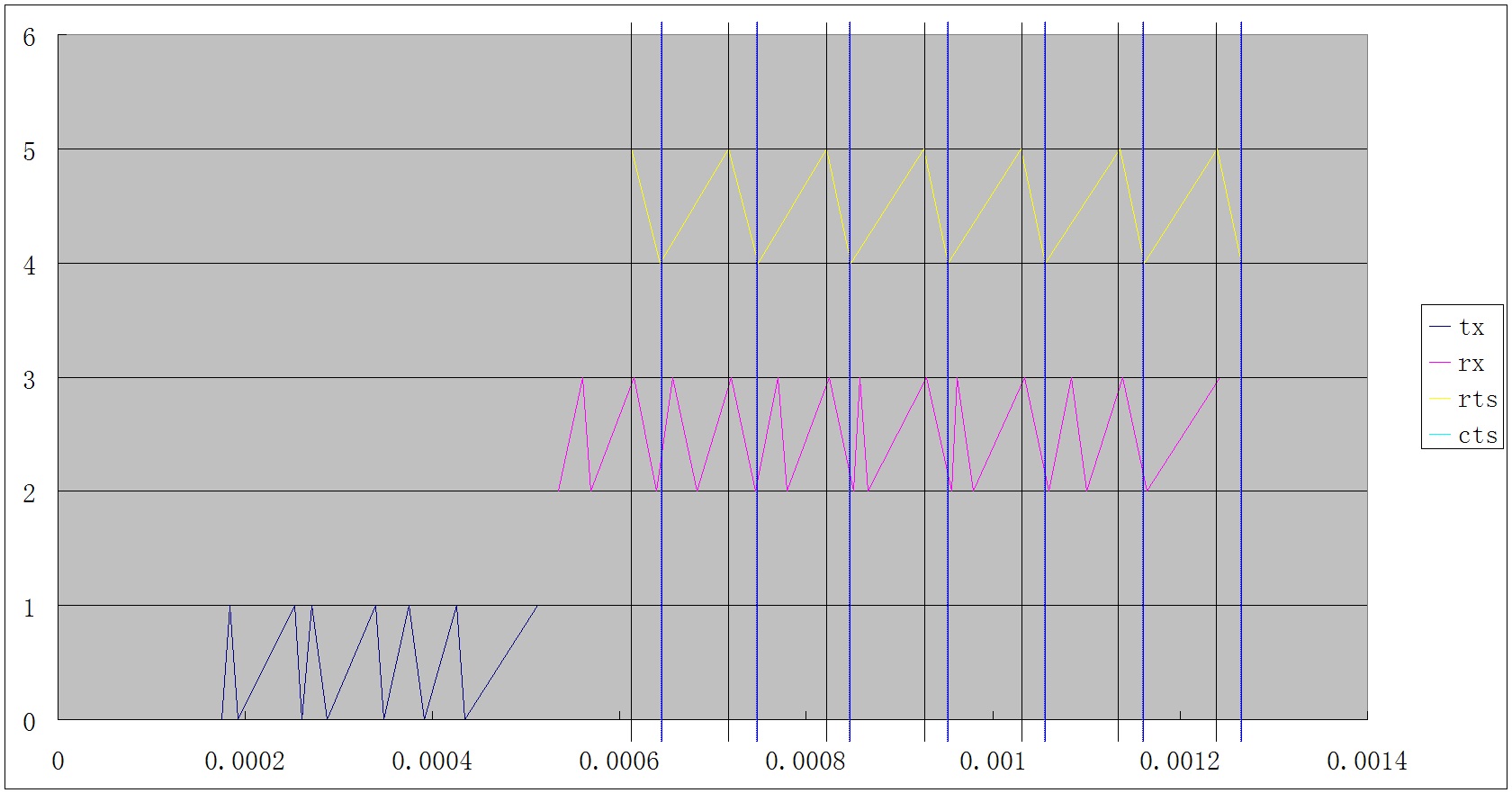A simple Oscilloscope that log each pin's data change Please dump log and analyze using Excel x-y chart type!

Scope.cpp
- Committer:
- steeven
- Date:
- 2015-05-10
- Revision:
- 0:6c6d961dc8b3
File content as of revision 0:6c6d961dc8b3:
#include "Scope.h"
namespace steeven {
ScopePin::ScopePin(PinName pin, char id, Scope *scope) :
_pin(pin), _id(id), _scope(scope) {
_pin.fall(this, &ScopePin::on_fall);
_pin.rise(this, &ScopePin::on_rise);
}
void ScopePin::on_fall() {
_scope->log(_id, 0);
}
void ScopePin::on_rise() {
_scope->log(_id, 1);
}
Scope::Scope(int buf_len) :
_buf_len(buf_len) {
_cnt = 0;
_buf_cnt = 0;
_buf = new ScopeData[buf_len];
_timer.start();
}
void Scope::add(PinName pin, const char *name) {
new ScopePin(pin, _cnt, this);
_names[_cnt] = name;
// printf("%s ", _names[_cnt]);
_cnt++;
}
void Scope::log(char id, int v) {
if (_buf_cnt >= _buf_len)
error("Scope buffer overflow!\n");
_buf[_buf_cnt].id = (char) (v << 7) + id;
_buf[_buf_cnt].time = _timer.read();
_buf_cnt++;
}
void Scope::dump(BufferedSerial *logger) {
int i, j, k;
logger->putc('\n');
// channel names;
logger->puts("time\t");
for (i = 0; i < _cnt; ++i) {
logger->puts(_names[i]);
logger->putc('\t');
}
logger->putc('\n');
// channel data
for (j = 0; j < _cnt; ++j) { // buy channel
for (i = 0; i < _buf_cnt; ++i) { // find in all data
if ((_buf[i].id & 0x7f) == j) { // if this pin
logger->printf("%f\t", _buf[i].time);
for (k = 0; k < j; ++k)
logger->putc('\t');
logger->printf("%d", ((_buf[i].id & 0x80) > 0 ? 1 : 0) + j * 2); // add offset
logger->putc('\n');
}
}
}
//clear data
_buf_cnt = 0;
}
}